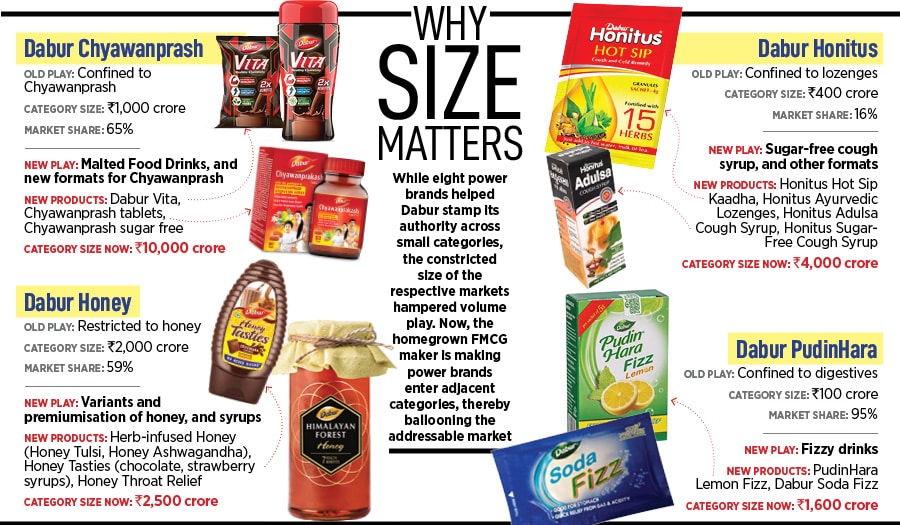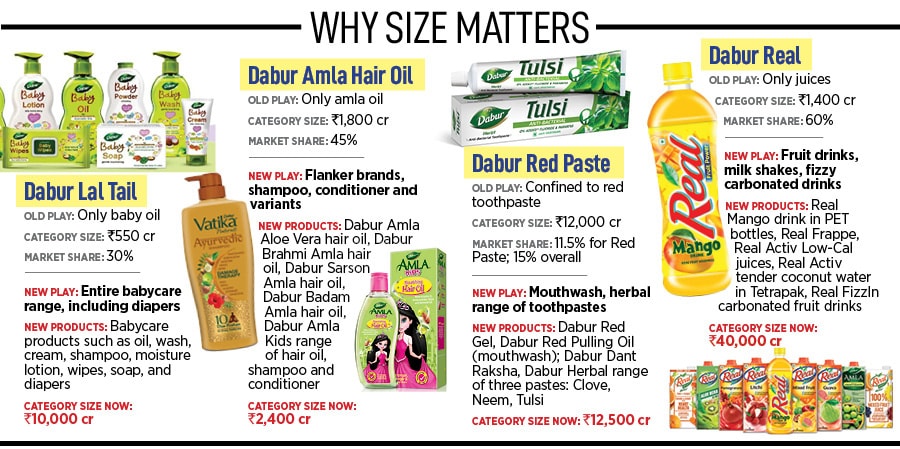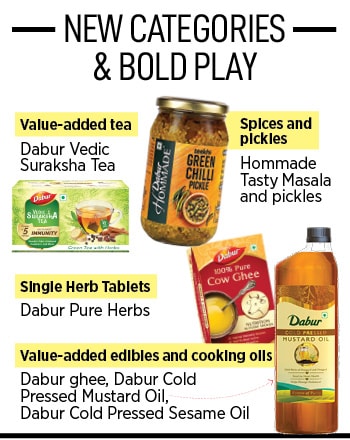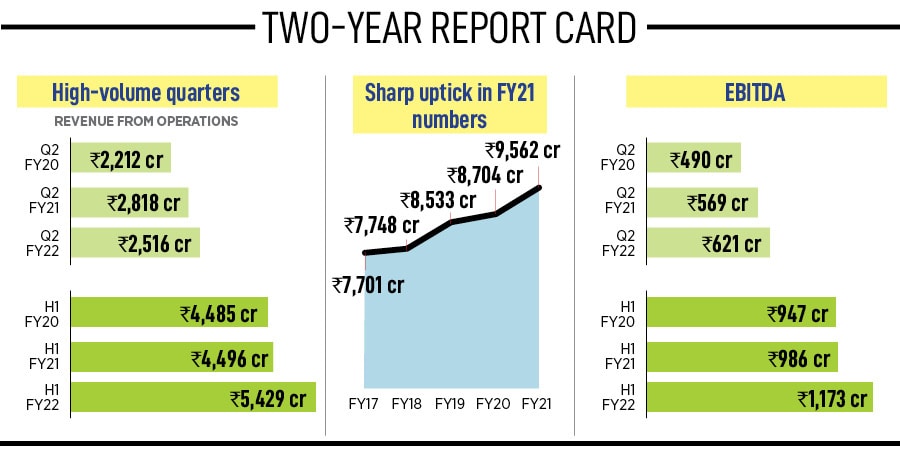
Small to XXL: How Dabur is resizing its FMCG business
From baby diapers to malted food drinks to cold-pressed cooking oils, Dabur is furiously plugging the gaps in its portfolio by expanding eight power brands into adjacent categories. Can the 'ghar ghar Dabur' gambit pay off?
 Mohit Malhotra, CEO, Dabur
Mohit Malhotra, CEO, Dabur
April 2020, Ghaziabad, UP
Suddenly, the ugly elephant in the room became visible. “I don't sell bread. I don’t have biscuits. I don’t make edible oil. I don’t even sell salt and atta…” Mohit Malhotra felt miserable. A month into the national lockdown triggered by Covid-19, life had come to a screeching halt for everybody, including the chief executive officer of Dabur who happened to be at the corporate headquarters in Kaushambi, Uttar Pradesh, on a blustery Friday.
Businesses had paused, shops were shuttered, and only essential goods and services were allowed. Essentially, the business of essentials meant a silver lining for every FMCG player. ITC started pushing its food portfolio on a war footing; Britannia got busy with an aggressive blueprint for breads, biscuits and other edibles; Marico and HUL too got into the act.
For Dabur, though, the forecast was gloomy. Almost the entire portfolio of the homegrown FMCG major was discretionary. Suddenly, Chyawanprash, honey, Hajmola, hair oil, digestives and fruit juice found themselves out of the essentials bucket of consumers who scrambled to buy and stock food and groceries. “I sell nothing,” the chief executive officer of Dabur rued at the stark reality of not having any essential product. Malhotra’s plight was understandable.
The maker of the biggest Chyawanprash and honey brand in India found itself in a fix. Consumers don’t see Chyawanprash as a medicine, and ayurvedic medicines that Dabur sells through chemist stores only contribute a fraction to its revenues. To add salt to the wounds, the grocery outlets—which contribute around 70 percent to the business—didn’t have any Dabur product. For a consumer packaged goods company, the glaring gaps in its portfolio became an eyesore. “Are we actually treading on the right track?” Malhotra wondered. A sense of brutal self-assessment gripped him. The chinks were exposed, and the big task for the CEO was not to mask the gaps but load the armoury with new weapons. The eight domestic power brands—Chyawanprash, Dabur Honey, Honitus, Pudin Hara, Lal Tail, Dabur Amla, Red Paste and Réal—needed booster doses.








 Dabur, reckon FMCG analysts, is finally waking up to the new realities and is tapping into its hidden potential. The transformation is not easy for a company that has always been fixated with margins and profits. For ages, what Dabur did was to either identify a niche or create a small segment and rule it. By virtue of being the market leader, it would make a profit. Now it wants to make profit by ramping up scale. “They have a right to win in most of the adjacent categories they are entering," says Ronak Soni, analyst at Equirus Securities.
Dabur, reckon FMCG analysts, is finally waking up to the new realities and is tapping into its hidden potential. The transformation is not easy for a company that has always been fixated with margins and profits. For ages, what Dabur did was to either identify a niche or create a small segment and rule it. By virtue of being the market leader, it would make a profit. Now it wants to make profit by ramping up scale. “They have a right to win in most of the adjacent categories they are entering," says Ronak Soni, analyst at Equirus Securities. 





